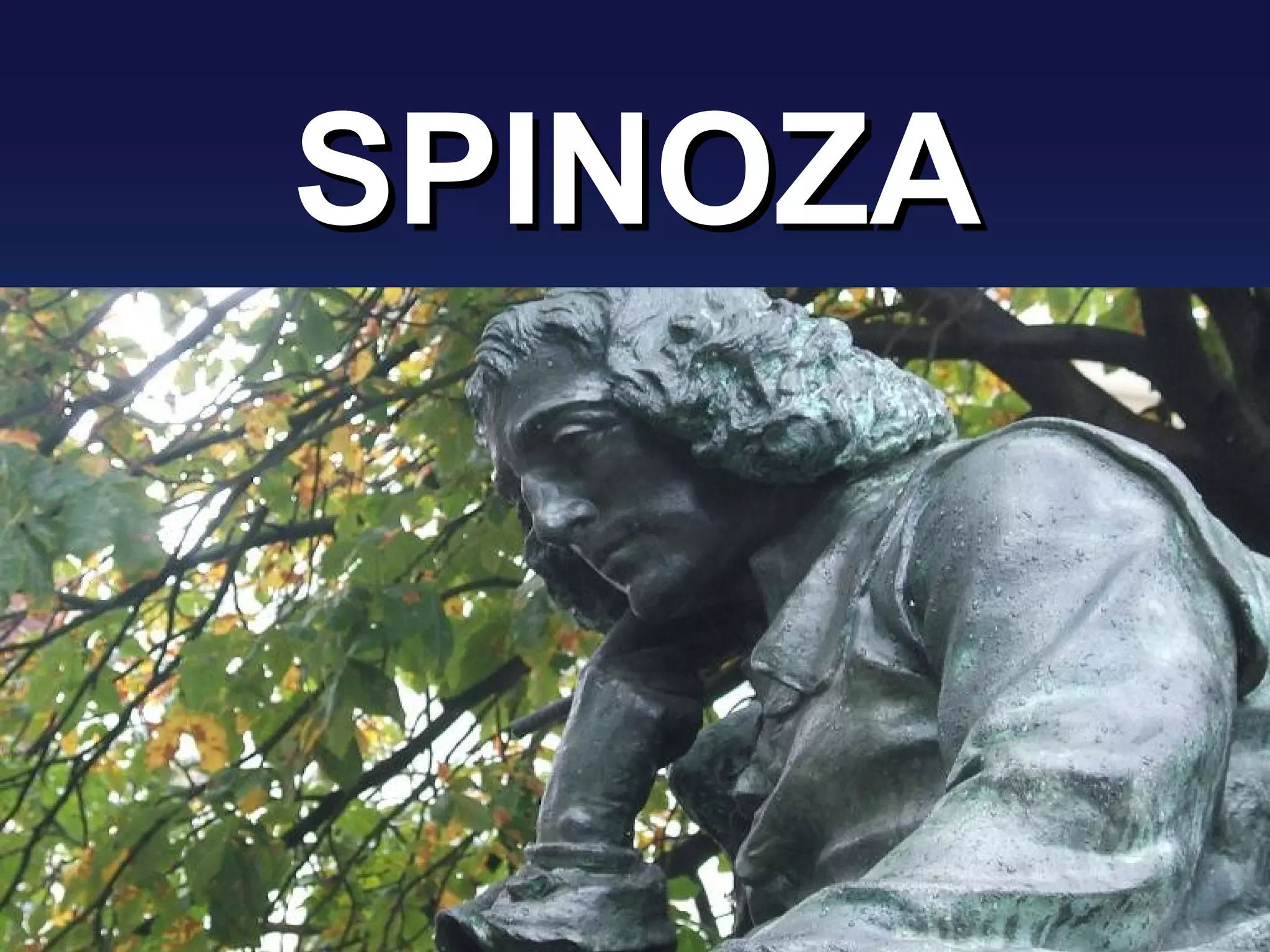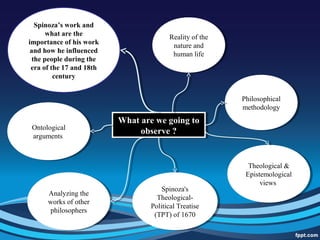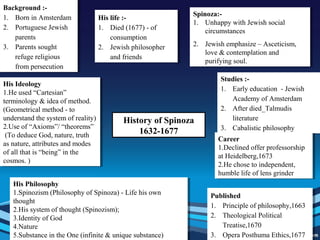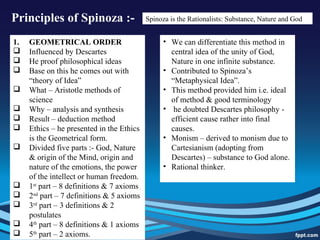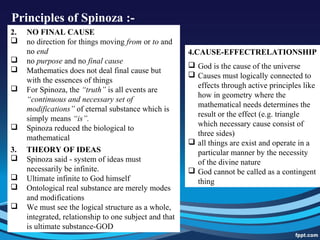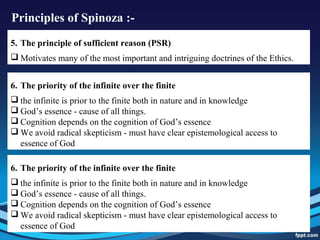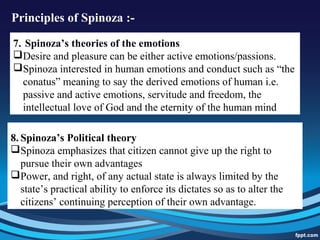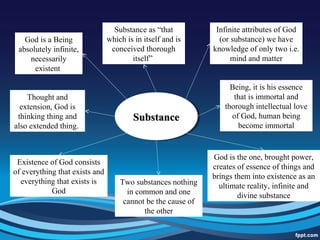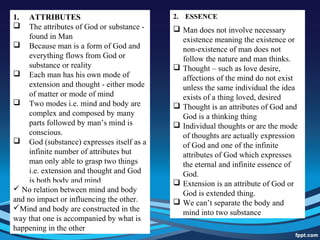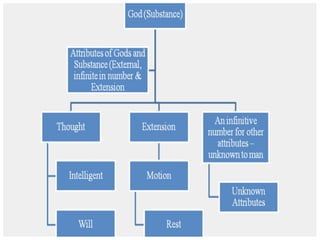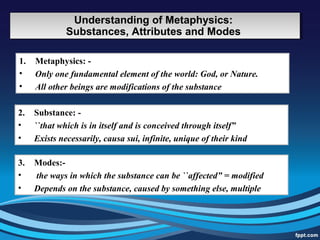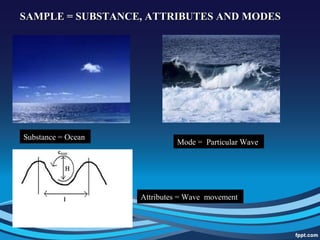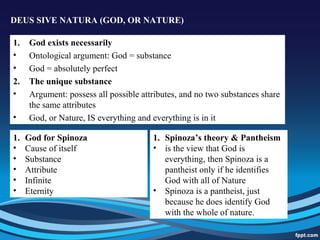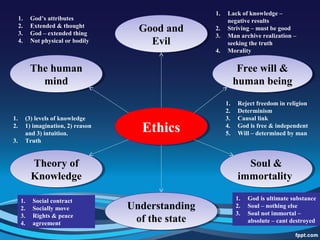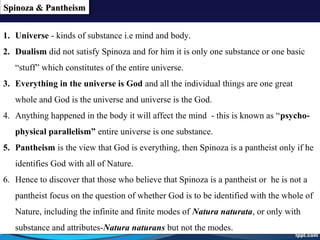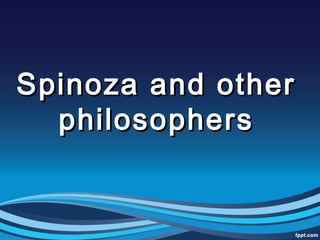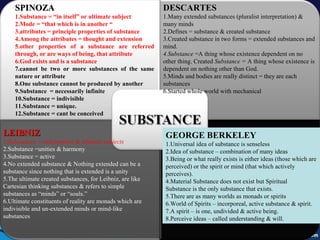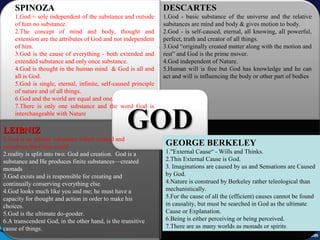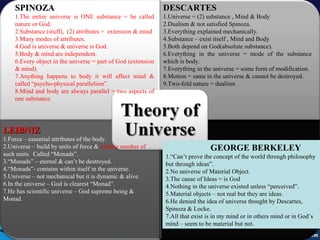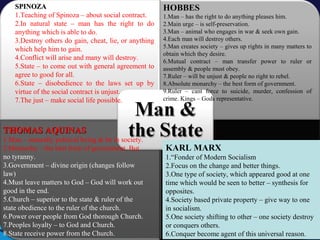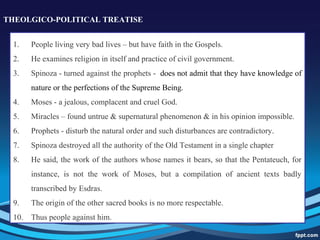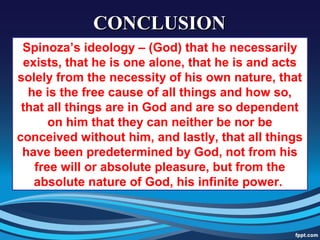Baruch Spinoza was a 17th century Dutch philosopher whose work had wide influence. He believed that there is only one substance in the universe, which he called God or Nature. All individual things are merely modes or modifications of this single substance. Spinoza's philosophy is known as rationalism and pantheism - he believed all things can be understood through reason and that God is equivalent to Nature. His major works explored ideas of substance, attributes, modes, ethics, the human mind, and understanding political states. Spinoza's unique philosophical system challenged dualist ideas of Descartes and others, and his rationalist approach to understanding God and Nature had significant impacts in subsequent European thought.
